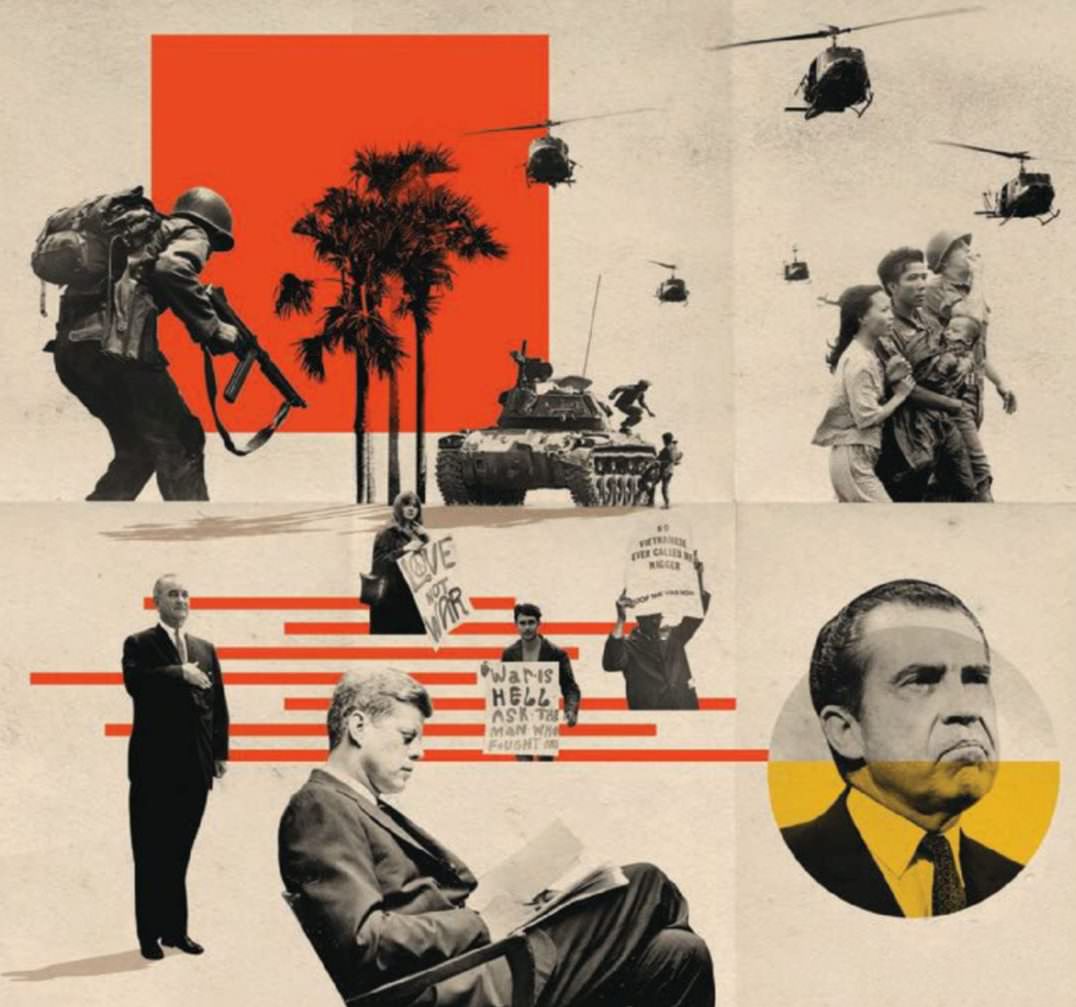The Vietnam War opened the credibility gap. What we’ve learned since has only widened it.

ON APRIL 30, 1975, when the last helicopter lifted off the roof of the U.S. Embassy in Saigon, the Vietnam War, the most consequential event in American history since World War II, ended in failure. More than 58,000 Americans and as many as 3 million Vietnamese had died in the conflict. America’s illusions of invincibility had been shattered, its moral confidence shaken. The war undermined the country’s faith in its most respected institutions, particularly the military and the presidency. The military eventually recovered. The presidency never has.
It did not happen all at once, this radical diminution of trust. Over more than a decade, the accumulated weight of critical reporting about the war, the publication of the Pentagon Papers in 1971, and the declassification of military and intelligence reports tarnished the office. Nor did the process stop when that last chopper took o›. New evidence of hypocrisy has continued to appear, an acidic drip, drip, drip on the image of the presidency. The three men who are most responsible for the war, John F. Kennedy, Lyndon B. Johnson, and Richard Nixon, each made the fateful decision to record their deliberations about it. The tapes they left behind—some of them still newly public, others long obscured by the sheer volume of the material—are extraordinary. They expose the presidents’ secret motives and fears, at once humanizing the men and deepening the disillusionment with the office they held.
この記事は The Atlantic の October 2017 版に掲載されています。
7 日間の Magzter GOLD 無料トライアルを開始して、何千もの厳選されたプレミアム ストーリー、9,000 以上の雑誌や新聞にアクセスしてください。
すでに購読者です ? サインイン
この記事は The Atlantic の October 2017 版に掲載されています。
7 日間の Magzter GOLD 無料トライアルを開始して、何千もの厳選されたプレミアム ストーリー、9,000 以上の雑誌や新聞にアクセスしてください。
すでに購読者です? サインイン

JOE ROGAN IS THE MAINSTREAM MEDIA NOW
What happens when the outsiders seize the microphone?

MARAUDING NATION
In Trumps second term, the U.S. could become a global bully.

BOLEY RIDES AGAIN
America’s oldest Black rodeo is back.

THE GENDER WAR IS HERE
What women learned in 2024

THE END OF DEMOCRATIC DELUSIONS
The Trump Reaction and what comes next

The Longevity Revolution
We need to radically rethink what it means to be old.

Bob Dylan's Carnival Act
His identity was a performance. His writing was sleight of hand. He bamboozled his own audience.

I'm a Pizza Sicko
My quest to make the perfect pie

What Happens When You Lose Your Country?
In 1893, a U.S.-backed coup destroyed Hawai'i's sovereign government. Some Hawaiians want their nation back.

The Fraudulent Science of Success
Business schools are in the grips of a scandal that threatens to undermine their most influential research-and the credibility of an entire field.